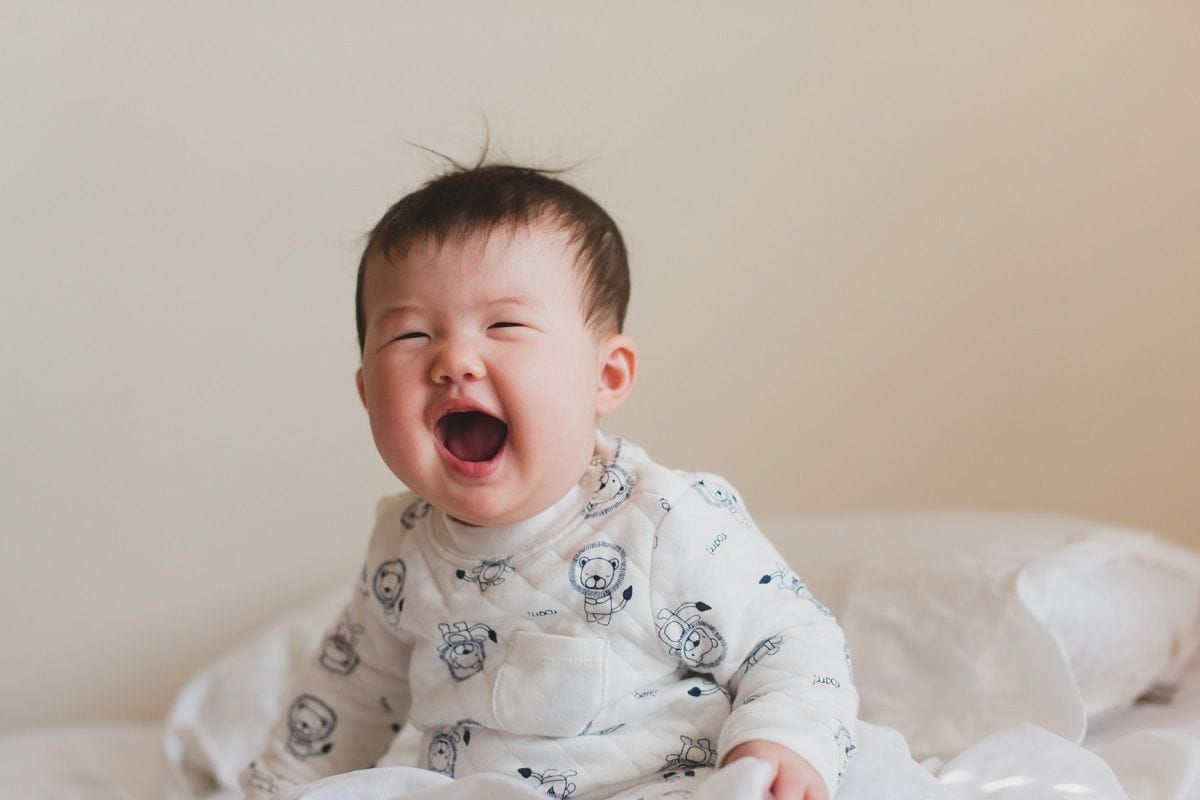Cue the Laugh Tracks! Why Babies Go from Gurgles to Full-On Giggles

By Cheryl Flanders
One day, when my grandson was about four months old, I took an empty cardboard paper towel roll and lightly bopped the table with it.
There’s nothing inherently funny in this simple act (to an adult). But to my grandson, the cardboard tube routine played like a vaudeville hit: He burst into a giggle so loud that I, of course, did it again…and again…and again.
Whether caused by a tummy tickle or a raspberry on the arm, a butterfly landing on a flower, or Dad’s goofy impression of a duck, there’s no denying how enchanting and magical baby laughter is. That first genuine giggle will light up your day and inspire a new game: Make the Baby Laugh!
Everyone Belongs In Our Circle
At KinderCare, we’re committed to building warm, welcoming and supportive classrooms for children of all abilities, backgrounds and experiences.
Find a center near youMost babies start experimenting with throaty sounds around the first month, and often break out into belly laughs around three or four months. So what changes in their brains to make them start to laugh—and why do they laugh?
Around this age, babies have put together a limited understanding of the world around them and have gained the concept of object permanence, which means they now understand that if an object disappears from their eyesight, it still exists and may come back (which is why peek-a-boo, at first so shocking to babies, suddenly becomes a scream—they’re in on the joke now). When something they consider abnormal or strange happens (like the paper towel roll hitting the table), they might start cracking up because, quite simply, they just weren’t expecting it!
More than that, laughter is usually inspired by a social interaction between baby and parent, which becomes the real meaning of the moment. In other words, once your baby sees your reaction to his laughter, he will want to continue thrilling both of you with endless chortling. This is a big milestone—it’s the beginning of your baby’s social development! After all, few people belly laugh alone.
Here’s some tips for encouraging your baby’s chuckles and chortles:
- Talk to your baby often. When you dress her, you might say, “I’m going to put your shirt over your head and button it!” This not only gives her lots of opportunities to giggle, it also exposes her to language as a form of communication—a natural companion for laughter.
- Before you indulge in a peek-a-boo fest with your baby, ensure he is fed, changed, and isn’t sleepy. A hungry, tired baby doesn’t find much humor in the world. (For that matter, neither do Mom or Dad.)
- Remember to take your cues from your baby. Crying is her signal that she wants something to change, while smiling and laughing means just the opposite: Keep doing what you’re doing!
A Lifetime Of Confidence Starts Here
Our teachers help every child build the confidence they need to try new things and explore the world around them.
Search for a center near youDo you have a little stoic? Don’t worry if your baby isn’t as quick to laugh—just like some adults have more serious temperaments, babies are no different. So, bring on the peek-a-boo, the goofy hats, and the ridiculous parental Vegas acts. Laughter is great medicine!-->





